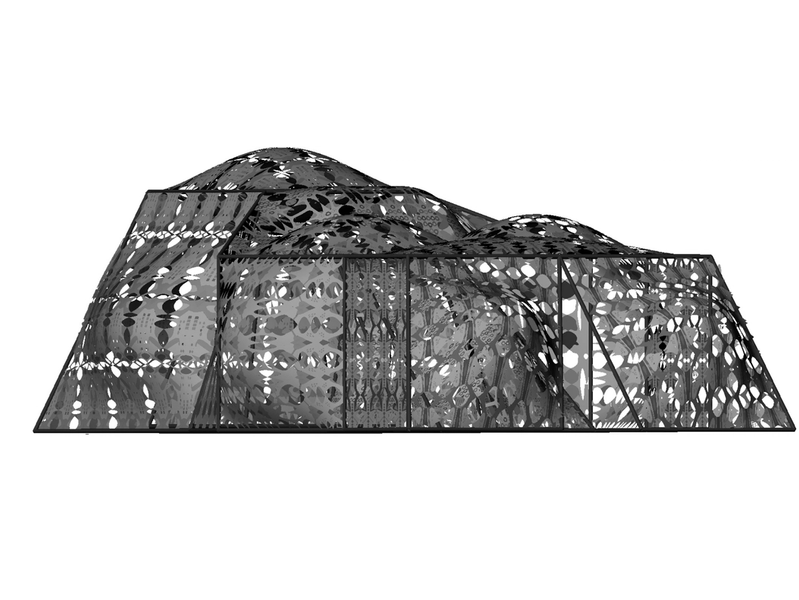“JABALA: 9 ASH CLEANSING TEMPLE” is a living architectural entity for homing non-human life and endangered species in the womb of a sacred mountain. It honours ephemeral rituals across architecture, performance, and art within Bedouin, Yoruba, and Cherokee communities that respect the natural world and practice environmental consecration. The temple is composed of jute, hemp, and cotton yarns knitted into fabric — chosen for their skin-like quality, porousness, and scalability.
To create this sensory nomadic shrine, organic plant fibres are knitted together and held on a frame by camel wool, referencing the architectural typology of the tent within Bedouin cultures. This sacred structure is an apparatus for collective aromatic Bakhoor/incense burning rituals and invites visitors to partake in breathing ceremonies within its inner altars.
The effect of climate change on Sharjah’s biodiversity is a central tenet of the project. To give these species a presence in the temple, each fabric component forms an architectural organism or ‘skin’ of different plant and animal species that are endangered in the region. The various knitted motifs in the fabrics also reflect cosmological belief systems within these cultures; symbols represent spirits, ancestors, and environmental entities that human life depends on. The temple’s outer form mimics the silhouette of Ras Al Khaimah’s Jebel Jais Mountain and the porous tectonic layers embedded within the region’s geological history.
After its life in Sharjah, the temple will be relocated to the Amazon, where it will merge with the forest, creating a sacred space for human and non-human environmental contemplation.
